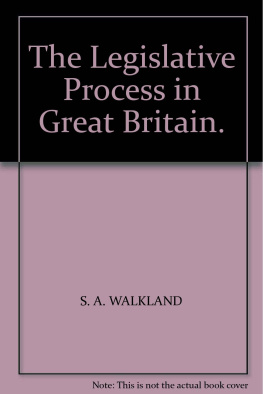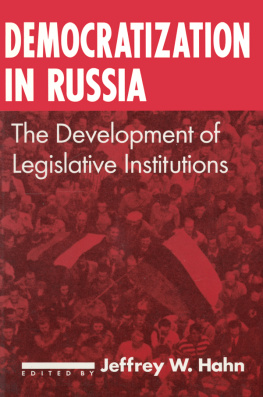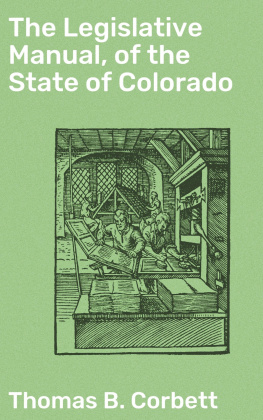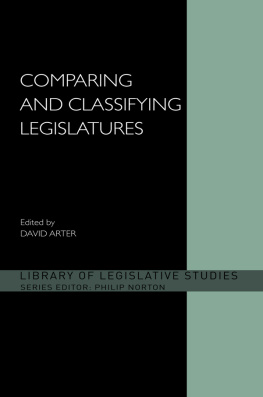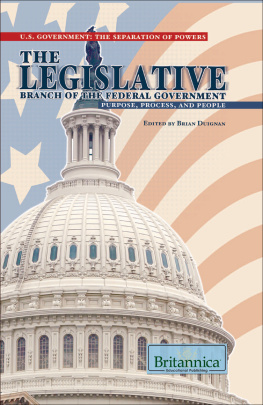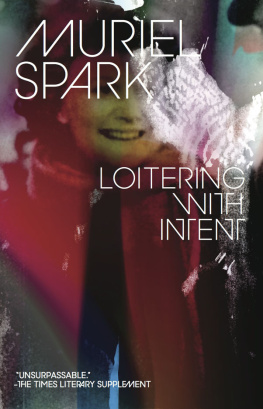Ekins - The Nature of Legislative Intent
Here you can read online Ekins - The Nature of Legislative Intent full text of the book (entire story) in english for free. Download pdf and epub, get meaning, cover and reviews about this ebook. City: New York;NY;Oxford, year: 2016;2012, publisher: Oxford University Press, genre: Romance novel. Description of the work, (preface) as well as reviews are available. Best literature library LitArk.com created for fans of good reading and offers a wide selection of genres:
Romance novel
Science fiction
Adventure
Detective
Science
History
Home and family
Prose
Art
Politics
Computer
Non-fiction
Religion
Business
Children
Humor
Choose a favorite category and find really read worthwhile books. Enjoy immersion in the world of imagination, feel the emotions of the characters or learn something new for yourself, make an fascinating discovery.

- Book:The Nature of Legislative Intent
- Author:
- Publisher:Oxford University Press
- Genre:
- Year:2016;2012
- City:New York;NY;Oxford
- Rating:4 / 5
- Favourites:Add to favourites
- Your mark:
- 80
- 1
- 2
- 3
- 4
- 5
The Nature of Legislative Intent: summary, description and annotation
We offer to read an annotation, description, summary or preface (depends on what the author of the book "The Nature of Legislative Intent" wrote himself). If you haven't found the necessary information about the book — write in the comments, we will try to find it.
Ekins: author's other books
Who wrote The Nature of Legislative Intent? Find out the surname, the name of the author of the book and a list of all author's works by series.
The Nature of Legislative Intent — read online for free the complete book (whole text) full work
Below is the text of the book, divided by pages. System saving the place of the last page read, allows you to conveniently read the book "The Nature of Legislative Intent" online for free, without having to search again every time where you left off. Put a bookmark, and you can go to the page where you finished reading at any time.
Font size:
Interval:
Bookmark:
OXFORD LEGAL PHILOSOPHY
Series Editors: Timothy Endicott, John Gardner, and Leslie Green
The Nature of Legislative Intent
OXFORD LEGAL PHILOSOPHY
Series Editors: Timothy Endicott, John Gardner, and Leslie Green
Oxford Legal Philosophy publishes the best new work in philosophically oriented legal theory. It commissions and solicits monographs in all branches of the subject, including works on philosophical issues in all areas of public and private law, and in the national, transnational, and international realms; studies of the nature of law, legal institutions, and legal reasoning; treatments of problems in political morality as they bear on law; and explorations in the nature and development of legal philosophy itself. The series represents diverse traditions of thought but always with an emphasis on rigour and originality. It sets the standard in contemporary jurisprudence.
ALSO AVAILABLE IN THE SERIES
The Ends of Harm: The Moral Foundations of Criminal Law
Victor Tadros
Corrective Justice
Ernest J Weinrib
Conscience and Conviction: The Case for Civil Disobedience
Kimberley Brownlee
Richard Ekins


Great Clarendon Street, Oxford, OX2 6DP
United Kingdom
Oxford University Press is a department of the University of Oxford. It furthers the Universitys objective of excellence in research, scholarship, and education by publishing worldwide. Oxford is a registered trade mark of Oxford University Press in the UK and in certain other countries
R Ekins 2012
The moral rights of the author have been asserted
First Edition published in 2012
Impression: 1
All rights reserved. No part of this publication may be reproduced, stored in a retrieval system, or transmitted, in any form or by any means, without the prior permission in writing of Oxford University Press, or as expressly permitted by law, by licence or under terms agreed with the appropriate reprographics rights organization. Enquiries concerning reproduction outside the scope of the above should be sent to the Rights Department, Oxford University Press, at the address above
You must not circulate this work in any other form
and you must impose this same condition on any acquirer
Crown copyright material is reproduced under Class Licence
Number C01P0000148 with the permission of OPSI
and the Queens Printer for Scotland
British Library Cataloguing in Publication Data
Data available
ISBN 978-0-19-964699-9
Printed in Great Britain by
CPI Group (UK) Ltd, Croydon, CR0 4YY
Links to third party websites are provided by Oxford in good faith and for information only. Oxford disclaims any responsibility for the materials contained in any third party website referenced in this work.
Richard Ekins book is a sustained argument for a well-integrated set of views: that a legislature is a rational agent, that it acts intentionally when it legislates, and that the task of the interpreter is to give effect to that intention. The intention in question is to adopt a reasoned proposal for law making. It is, in fact, the interlocking intention of all the members of the legislatureto act on the reasoned proposal if the majority votes for it. It is a complex intention because it necessarily involves, in Ekins view, the reasoning behind the proposal.
The result is an original work on the nature and effect of legislation. It has roots in political philosophy and in the philosophy of mind and of language. It presents elements of an account of the nature of law, drawn from the tradition of natural law theory and given new elaboration. The implications of the argument for the theory of interpretation are set out with Ekins characteristic directness and clarity.
To some it has seemed that a legislature cannot act intentionally, because it is an assembly of individuals who have different intentions, and has no mind of its own. To others it has seemed that the legislatures law making power is simply to enact a text, and that the intention to do so offers no assistance to the interpreter who must determine the meaning of the text. Ekins responds to these theories of legislation with verve, arguing that they entail that legislating is collectively irrational.
The book puts central issues, long debated, in a new perspective. It is a step forward in legal philosophy, when you discover that a controversial position has more to it than you had thought. Readers who disagree with Ekins have that discovery in store.
This book will raise the standard of debate about the making and interpretation of legislation. It will also create new debates. We are delighted to publish Richard Ekins book in Oxford Legal Philosophy.
Timothy Endicott
John Gardner
Les Green
August 2012
Althing in Session; oil on canvas by W G Collingwood (1897)
The Althing, the central institution of the Icelandic Commonwealth (930AD1262AD), was a general assembly of the nation, in which the goar (chieftains) met to settle disputes and to make new law. All free men were entitled to attend, and assemblies, held for two weeks in mid-summer, drew large numbers of farmers, traders, craftsmen, and storytellers, as well as quarrelling parties. The Althing met at Thingvellir, a magnificent rift valley some 45km east of what is now Reykjavk, and was formally opened and adjourned at Lgberg (law rock) by the assemblys presiding officer, the Lawspeaker.
At the Althing, laws were made and unmade by the Lgrtta (or law council), which consisted of the goar and the Lawspeaker. The Lgrtta appointed the Lawspeaker, the only paid official of the Commonwealth, for a three-year term. At each assembly, he recited the procedural law of the Althing and one third of the substantive laws then in force. In Collingwoods painting, the Lawspeaker stands on the Lgberg, surrounded by goar and others, perhaps reciting the law or opening or adjourning the Althing. In the foreground are two booths, stone structures tented over as dwelling or meeting places. From the Lgberg, the members of the Lgrtta would have moved down the slope seen on the left of the painting, to meet in a circular stone platform, the remains of which were discovered in 1742.
Collingwood spent three months in Iceland in the summer of 1897. He recorded his journey in A Pilgrimage to the Saga-Steads of Iceland (1899, with Jn Stefnsson), which included over 150 sketches intended, as the Preface says, to illustrate the sagas of Iceland to supply the background of scenery which the ancient dramatic style takes for granted.
This book is based on my Oxford doctoral thesis and I am greatly indebted to my supervisor, John Finnis, for his invaluable advice and support. No student could have had more careful, encouraging oversight, or a better model of scholarly rigour. For kindling my interest in the fundamentals of statutory interpretation, I thank Jim Evans, my first teacher of jurisprudence, on whose work I continue to draw deeply, as my final chapter attests.
Balliol College provided an ideal scholarly home throughout my studies in Oxford, for which I thank its members. I am grateful to the Tertiary Education Commission of New Zealand and the Marsden Fund of the Royal Society of New Zealand for financial support. While the thesis was largely conceived and written in Oxford, I completed it in Auckland. The main revisions were later undertaken again in Oxford, on leave from the Faculty of Law at The University of Auckland, for which support and to whose members, especially Paul Rishworth, I am very grateful. I also thank the Oxford Jurisprudence Discussion Group and the Statute Law Society for the opportunity to present my research and for helpful comments.
Next pageFont size:
Interval:
Bookmark:
Similar books «The Nature of Legislative Intent»
Look at similar books to The Nature of Legislative Intent. We have selected literature similar in name and meaning in the hope of providing readers with more options to find new, interesting, not yet read works.
Discussion, reviews of the book The Nature of Legislative Intent and just readers' own opinions. Leave your comments, write what you think about the work, its meaning or the main characters. Specify what exactly you liked and what you didn't like, and why you think so.



